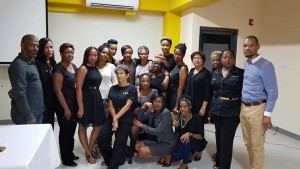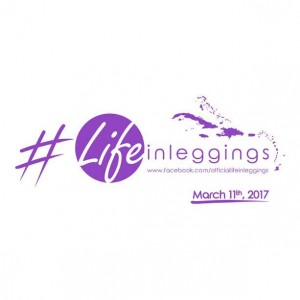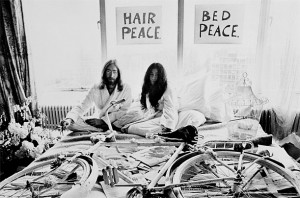
There Are Many Ways to Be an Activist
February 11th, 2017
Activism (and advocacy, its first cousin) is like a tree with several large branches. Like our guango tree. Each branch grows in a different direction, but each branch is strong. Or, to use another nature metaphor, it is like a plant bearing many seeds. Like our moringa tree. The seed pods fall, and break. Sometimes the seeds are eaten and digested by birds; sometimes we eat them (they give you energy). Sometimes they fall on stony ground and no one benefits.

51% Coalition members and supporters pose for a photo at the recent meeting on violence against women and girls, where priorities and action plans were outlined.
I put down my thoughts on being an advocate or an activist (it’s fair to say, I think, that I am a bit of both) in an email to some of my Sisters in the 51% Coalition recently. They liked it, so I am repeating it below. There has been an upsurge in protests, petitions, meetings, resolutions and statements – a general stirring up of emotions this year (still only a few weeks old) – sparked by the soaring murder rate and a growing anxiety over the abuse of women and girls. New groups such as the Tambourine Army have sprung up and are challenging the status quo. These are issues that are not peculiar to Jamaica, in fact. The recent Women’s March (which is still campaigning) after President Trump’s Inauguration, and the ongoing protests in cities across the United States on a range of human rights issues, provide an inspiring backdrop. Even though the specific issues may be different, Jamaican protesters would find much in common with their brothers and sisters over there (and elsewhere).

Hashtags are proliferating. #LifeinLeggings and partners are planning a march against gender-based violence in seven Caribbean countries on March 11.
I became an activist when I was in sixth form at school in the UK, and then through my student years in the early seventies. Back then, anti-apartheid protests were building momentum globally, and I joined the Young Liberals – a radical group in those days headed by a dissident South African, whose family had been kicked out of South Africa and lived just down the road from me in London. I participated in many anti-apartheid“demos” as we called them then. And they were almost on a weekly basis. I should add that other groups joined the demos – for example, the Campaign for Nuclear Disarmament (CND) – which still exists and was relevant and very influential in its time.
I believe there are many different approaches to activism; there is not one that is “better” than the other. Some people prefer to stay quietly in the background – holding small meetings, talking to people, or (like me) writing. Others like to make a lot of noise (the “squeaky wheel” that gets the most grease) and challenge the status quo. There are others who prefer to work within the system, trying to make a change by engaging policy-makers and influencers. Some might want to reach particular groups – the youth, inner city residents etc – while not lumping them all together as a homogenous group.
So long as we are all moving towards the same goal I think that is fine. In fact, it is better to have varying approaches for varying audiences. The younger generation likes to make noise (as I certainly did in the 1970s!) and will reach those more radical elements who want to challenge “authority.” Other generations, or more conservative sections of society may prefer to hold meetings, make resolutions, and present them to the Prime Minister, for example. But we should all have the same goal in mind, which is changing things – people’s lives – for the better. I think we all have that passion, although we may express it differently.
I do have an issue with language, as I noted in an earlier blog post. When one curses at others in public spaces (in Jamaica, anyway) – including on social media – it changes the conversation. It turns many people off who might otherwise be very sympathetic, and people will withdraw from the dialogue and stop listening. Or, they will respond in kind. It adds an element of aggression to the discussion, and I think that’s unnecessary.

I would suggest the militancy of the Black Panther movement, powerful as it was, did not ultimately take them where they wanted to go. Screenshot from “The Black Panthers: Vanguard of the Revolution” (PBS/YouTube)
The same of course goes for acts of violence, which completely change things. Completely. The Black Panthers were destroyed by the “system,” that way. In Jamaica’s case, it might be threats and lawsuits. But they will defeat you if you have used violence; it’s so much easier to incur a backlash.
Here’s a quote from John Lennon, which I posted on my Facebook page the other day:
“When it gets down to having to use violence, then you are playing the system’s game. The establishment will irritate you – pull your beard, flick your face – to make you fight. Because once they’ve got you violent, they know how to handle you. The only thing they don’t know how to handle is non-violence and humor.”
Yes, humor!

John Lennon and Yoko Ono’s “love and peace” campaign was curious, amusing, slightly tongue in cheek but serious and very effective. The honeymooning couple stayed in bed for a whole week in 1969, and invited media.
Again regarding language… If one is using words like “disrupt” and “intersectionality” that is fine within your own circles. However, 90% of Jamaicans are not going to understand what on earth you are talking about. We don’t have a highly educated population and we didn’t all do Social Sciences at the University of the West Indies! I am not keen on jargon, personally. We need to reach as many people as possible, not just preach to the converted in our own esoteric language.
Having been in the communications business for some 20 years now, I do believe the way we communicate is absolutely critical. And that includes listening to each other.
I also believe in solidarity. With women’s marches all over the world recently on a range of issues (not just Trump), Jamaican women were silent. Yes – we could have supported our sisters (and brothers).
These are just my overall thoughts. I’m speaking in generalities, I know. Now, lets get down to the details!
Tags: 51% Coalition, activism, advocacy, anti-apartheid, Black Panthers, Campaign for Nuclear Disarmament, crime and violence, Donald Trump, Facebook, guango, human rights, Jamaica, John Lennon, moringa, Prime Minister, protests, Tambourine Army, UK, United Kingdom, United States, University of the West Indies, Women's March
The Gleaner reserves the right not to publish comments that may be deemed libelous, derogatory or indecent.
To respond to The Gleaner please use the feedback form.
3 Responses to “There Are Many Ways to Be an Activist”
- We Are the Zoomers
- Living Online with Humans and Birds: NAOC 2020
- Human Trafficking and the Problem of Public Education
- Down Memory Lane
- Are We Ready to Recover from COVID-19?
- Road Safety Matters: Is Your Vehicle Safe?
- Sexual Harassment, Me Too, and the Minister’s Disturbing Giggle
- The Vulnerable Senior Citizens, Private Care Homes and COVID-19
- A Muddle Over Masks
- Here is Something Life-Saving You Can Do: Give Blood!



I am a concern citizens that lives out side of Jamaica but have grate interest in my home land.Crime has been escalating like no body business.People been abducted murder and body parts found.We need to know who are the people that is running this high profile ring.Could the government block channel where people are able to use sea for transportation and harbour where shipping are carried out or keep an drastic checks on what goes on flights.The government need to used electronics checks on messages by mobile phones or internet because someone out there knows what is happening and are making big money on innocent lives we Jamaican are not stupid if you people don’t start doing something but I am sorry we that are in foreign country we come together and
and let the world knows that our government don’t love its people.Why are so many Chinese and different nation doing in Jamaica do they have something to do with this crime or is someone hiding some information that are valuable to the security.We need to bring people to justices.I will not rest until people can live in peace and harmony.Bring back lashings and then in future will think of another solution we are crying murder need to ball.
Hi, Ann Marie: I don’t believe there is a “high profile ring” – or the police would have known about it by now. The government is actually focusing on border security, blocking access to the coastline by drug smugglers who are also bringing in guns. We now have a fixed wing aircraft and many more patrol boats along the coastline, mostly donated by the U.S. government. It is also making much greater use of technology – voice notes and videos (many of which appear on social media) are being quite closely checked. The FBI and the Bureau of Alcohol Tobacco and Firearms also have offices in Jamaica now. A MAJOR problem is – yes, people tend to turn a blind eye to illegal activities (including child sexual abuse) in communities and this makes the job much harder for the police. The police are actually working quite hard and our new Commissioner, if she is confirmed, will be an asset, I think. I know that when you live overseas you do get rather distorted views from people. Don’t listen to rumors. The “hard policing” approach (bring back flogging, hanging etc) has been tried in the past and has not worked. There is not one “silver bullet” solution either – it is a lot of actions on the ground, by law enforcement and by we, the Jamaican people. We have a very long way to go. But don’t think nothing is being done.
[…] I wrote a piece for the Gleaner blog page recently: There Are Many Ways to Be an Activist. This supports what I have said above, I think you will find. You don’t have to agree with […]